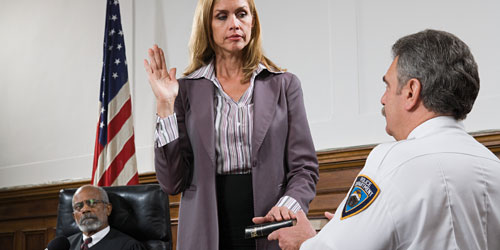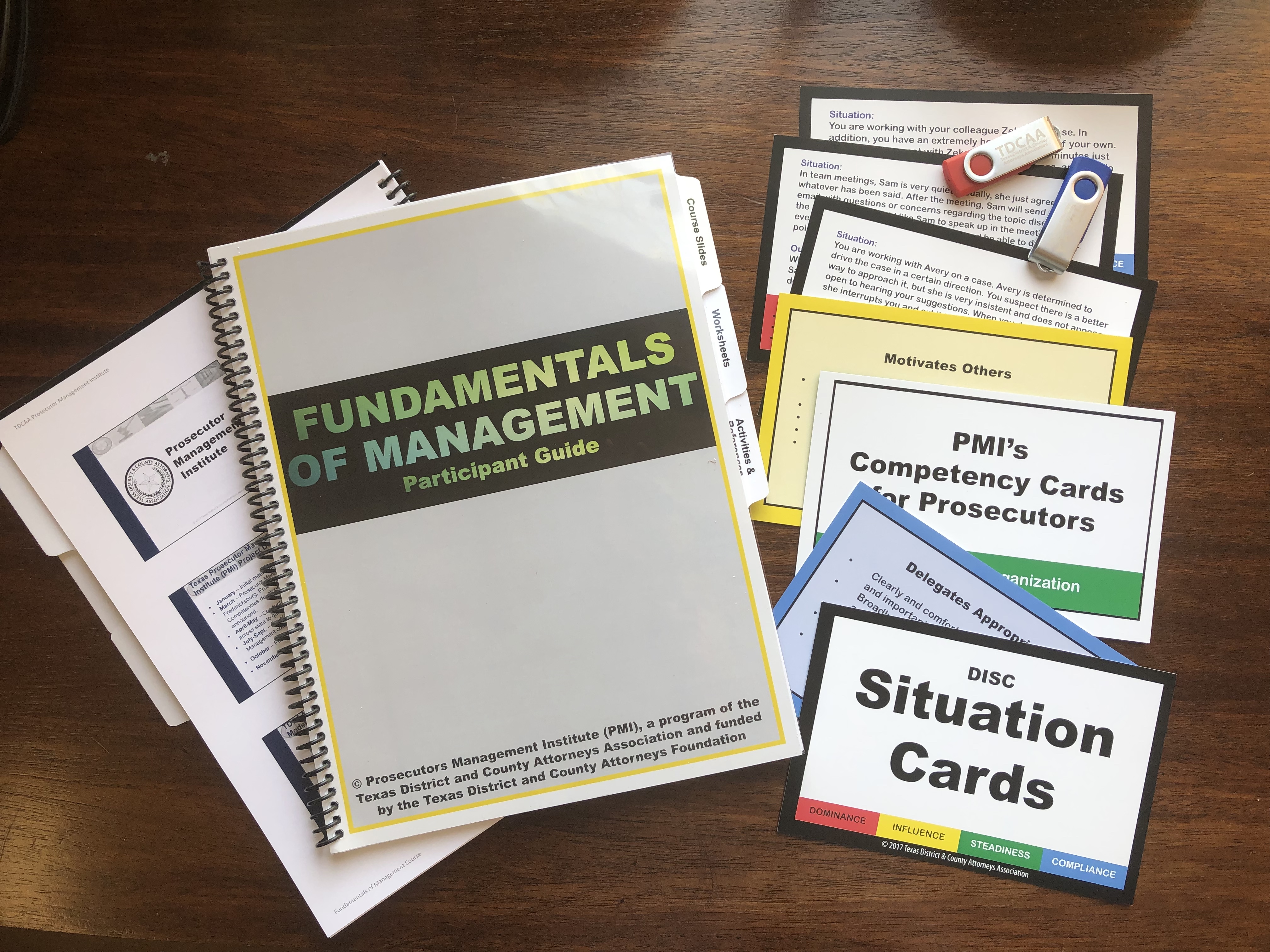Misery loves company, so here’s a bracket-busting joke for you:
Q: Why does the Gonzaga basketball team’s website go down every spring?
A: Because they can never string together three W’s in March.
Change to State Bar disciplinary rules?
The State Bar’s Committee on Disciplinary Rules and Referenda (CDRR) has posted notice for an online hearing regarding proposed ethics changes, including one that would expand prosecutors’ ethical duties under Rule 3.09 (Special Responsibilities of a Prosecutor). That hearing will be held on Wednesday, April 6, 2022, starting at 10:00 a.m. If you haven’t read the proposal printed in the March 2022 edition of the Texas Bar Journal, you should—pay particular attention to the “cradle-to-grave” ethical duties regarding exculpatory evidence for anyone who was ever a prosecutor. If you have concerns, now is the time to raise them by testifying at the Zoom meeting or submitting comments. For more information, visit the CDRR webpage or contact Rob Kepple.
Disaster here, disaster there, disaster everywhere
Your local officials may be ratcheting down their pandemic threat levels or letting their emergency orders lapse, but not the state. Last week, Governor Abbott renewed his two-year-old COVID-19 disaster declaration for another 30 days (order available HERE). Ditto for the state’s 10-month-old border security disaster declaration, which was also renewed for another 30 days for the counties listed therein (order available HERE).
The Texas Supreme Court has also issued its 49th Executive Order (eff. 4/1/22) to continue various pandemic-related procedures that were recently been laid out in the court’s 47th Executive Order. (The only difference is the deletion of two prior provisions related to justice and municipal court proceedings; for details, see paragraphs 4–5 of Order 47, which are no longer included in Order 49).
Proceed accordingly.
House Interim Charges
Texas House Speaker Dade Phelan (R-Beaumont) has issued interim committee charges that will serve as the basis for House committees to take up matters during the interim in preparation for the next regular session. There’s a lot to unpack here, so we’ll break it down into smaller bites.
House Criminal Jurisprudence Committee
Topics for study by the primary committee impacting criminal law are:
- Monitor the implementation of laws enacted last session, including HB 1540 (human trafficking)
- Make recommendations for reducing employment barriers for people with criminal records, including considering expanding the types of records eligible for non-disclosure
- Examine ways to increase compliance with court-ordered appearances, including virtual appearances and other new technology
- Make recommendations to improve the availability and effectiveness of court-appointed counsel
- Make recommendations for improving access to community-based services for crime victims
If you read that list and wonder where the usual “red meat” is—you know, death penalty, drugs, forfeiture, grand jury, etc.—those issues have been reserved for special treatment this interim.
Interim Study Committee on Criminal Justice Reform
In an effort to highlight his support for criminal justice reform, the speaker created a special “interim study committee” for that topic. Members of this special committee are:
- Rep. Jeff Leach (R-Plano), chair;
- Rep. Joe Moody (D-El Paso), vice-chair;
- Reps. Rhetta Andrews Bowers (D-Rowlett), Brad Buckley (R-Salado), Angie Chen Button (R-Garland), David Cook (R-Mansfield), Cole Hefner (R-Mt. Pleasant), Eddie Morales (D-Eagle Pass), Reggie Smith (R-Van Alstyne), and Senfronia Thompson (D-Houston), legislative members; and
- Public member Brett Tolman, a former U.S. Attorney in Utah who is now Executive Director for Right on Crime.
If you are surprised by that last entry, don’t be. This is a “special interim study committee” that doesn’t vote on actual bills, so the speaker can put anyone he wishes on it, including representatives of groups that lobby the legislature. (And remember when we shared with you in last month’s update Right on Crimes’s policy reform agenda? Well, now you know why.) Note also that only one member of this interim study committee (Rep. Cook) is currently on the House Criminal Jurisprudence Committee, making this unusual committee appear to be an “end run” attempt to shake things up in the lower chamber when it comes to criminal justice reform.
To that end, this new interim study committee has been created to “examine all elements of state policy that influence intake and outcomes in the state’s criminal justice system and make recommendations to protect the safety of all Texans and preserve Texans’ constitutional rights to due process of law.” To that (extremely broad) end, the committee is specifically charged to do the following (with some helpful interpretations added by us):
- Monitor the implementation of SB 6 (bail reform)
- Examine the following areas of criminal justice policy:
- Policing, including training, use of force, arrests, and alternative responses (read: “back the blue”)
- Criminal procedure from detention through appeal, including:
a. drug offense penalties (read: lowering marijuana-related penalty ranges)
b. use of prosecutorial discretion (read: hamstringing or eliminating it)
c. use and conditions of detention and incarceration (read: limiting them)
d. civil asset forfeiture (read: ending it)
e. jury instructions and sentencing guidelines in felony cases (read: changing the law of parties, jury instructions in death penalty cases, and more) - Transparency in policing and prosecution, including the grand jury process (read: new interim, same old ideas)
- Age of juvenile jurisdiction (read: raising it) and parole eligibility (read: “second look” retroactive early parole eligibility for certain violent offenders)
- Opportunities to reduce recidivism and remove barriers to re-entry after justice involvement
Now, if you read all that and think “Good golly, they’ll never get through all that in the few months available to them during the interim,” let us assure you that they will have no trouble doing so. In fact, the recommendations that will come from the committee have probably already been written (as you can see from some of the links provided). So, sit back and enjoy the show.
More charges of interest
Other interim House charges of general interest include:
- Study appropriations from the state Sexual Assault Fund and Crime Victims Compensation Fund; consider whether current revenue sources are sufficient to maintain victims’ services grants (Appropriations Committee Charge #3)
- Study the impact or organized retail theft on Texas businesses and make recommendations for addressing it (Business & Industry Charge #4)
- Examine the availability of behavioral health services and drug/alcohol treatment and recovery options for individuals in county jails, in TDCJ facilities, and on community supervision and parole (Corrections Charge #6 / County Affairs Charge #4)
- Study the operations of specialty courts and determine whether additional specialty courts are needed to address specific populations (Judiciary & Civil Jurisprudence Charge #5)
- Examine new technologies to facilitate domestic violence reporting in the context of obtaining and enforcing protective orders (Juvenile Justice & Family Issues Charge #3)
- Examine ways to strengthen and enforce laws to reduce illegal gaming and game rooms, including those utilizing 8-liners (Licensing & Administrative Procedures Charge #2)
- Make recommendations to reduce illicit massage establishments and related activity connected to human trafficking (Licensing & Administrative Procedures Charge #3)
- Make recommendations to improve prevention, education, treatment, and data-sharing in regard to opioid abuse in Texas, with a focus on the impact of fentanyl-related overdoses and deaths (Public Health Charge #3)
- Monitor the implementation of HB 3927 relating to temporary vehicle tags (Transportation Charge #1)
The full list of House interim charges can be read HERE, for those so inclined. As committee hearings are announced on interim charges that are relevant to your work, we will try to post them in this monthly update. However, if you have a specific interest in a topic, you might consider tracking that committee separately on the state legislature’s website using their “My TLO” feature. If you have questions on how to do that, contact Shannon.
Senate update
Senate interim charges have not been assigned yet, but the Lite Guv did re-shuffle the deck chairs in the upper chamber in response to impending retirements. Perhaps the most interesting of those was the appointment of Sen. Chuy Hinojosa (D-McAllen) as Vice-Chair of the Senate Finance Committee, a position he held until replaced by Sen. Eddie Lucio, Jr. (D-Brownsville), who is not seeking re-election. In other words, Hinojosa is now replacing the person who replaced him. And so the world turns under the Big Pink Dome.
New SASTF-sponsored report
Researchers at UT-Austin’s Institute on Domestic Violence and Sexual Assault (IDVSA) have released the second of two reports sponsored by the Sexual Assault Survivors’ Task Force (SASTF) that was created by the state legislature in 2019. This latest study focuses on the services needed by adult and child survivors of sexual violence in Texas. Entitled “Voices of Texas Sexual Assault Survivors: Services, Gaps, and Recovery Journeys (2022),” this report presents findings from interviews with sexual assault survivors and parents/guardians of child sexual abuse survivors about services they received and/or services needed but not received. It also highlights the gaps and barriers they experienced in the Texas service system and makes recommendations to improve service delivery based on the needs, experiences, and barriers expressed by survivors themselves. For more details, read the report at the link above.
Prosecuting Violent Crimes Conference
Online registration for our Prosecuting Violent Crimes Conference (April 11–14, 2022, at the Hyatt Regency Houston West) is still open. There will also be a FREE domestic violence training on protective orders provided separately on Monday, April 11, in conjunction with the conference. For more details or to register online, click HERE.
Annual Conference scholarships
We want to alert everyone to two potential funding sources to help you or your employees attend our 2022 Annual Criminal and Civil Law Conference in Corpus Christi this fall.
First, the Texas District and County Attorneys Foundation (TDCAF) is providing a limited number of scholarships through generous gifts made in memory of Mike Hinton. To apply, complete this online application and send it in by Saturday, April 30, 2022.
Second, the State Bar Criminal Justice Section’s scholarship process is also open for applications. To learn more about that option, click HERE. Those applications and related documents are due by Friday, April 1, 2022.
Scattershooting
Some articles and other online postings that you might find interesting:
- “Amid Austin police indictments, the issue of whether officers testify before grand juries isn’t as simple as a talking point.” (KVUE)
- “State officials are pushing back against local DAs who win elections on reform messages” (GRID)
- “Harris County to spend $50 million to fight crime by planting trees, adding lights, fixing sidewalks” (Houston Chronicle)
- “More than half of the Texas House wants to stop the execution of Melissa Lucio, convicted of killing her toddler” (Texas Tribune)
- “Demand for Safe Rooms Skyrockets in Los Angeles” (The Hollywood Reporter)
Quotes of the Month
“I’ll let you in on a secret: Republicans like to get high just as much as Democrats.”
—Beto O’Rourke, Democratic nominee for governor, on why he thinks he can convince the legislature to legalize marijuana if he is elected governor.
“Nobody knows who we are—it’s impossible for the electorate to be informed.”
—Judge David Singer, Harris County Criminal Court-at-Law No. 14, who was defeated in the Democratic primary by Harris Co. Asst. DA Je’Rell Rogers during an election cycle in which bail reform was a major issue.
“We’re spending millions and billions of dollars in trying to manage something, but instead of getting me the plumber to stop the leak, they’re sending me people to mop up the floor.”
—Hidalgo County Judge Richard Cortez, referring to Operation Lone Star’s effectiveness—or lack thereof.
“The district attorney’s office was phenomenal. They had a victim’s advocate there as well, and she was wonderful. … I felt prepared, I felt supported, I felt believed, I felt empowered. … The whole process was as good as I can imagine it could ever be.”
—Anonymous adult survivor of sexual assault, as recounted in the recent SASTF report referenced above. For related feedback—including negative experiences caused by inadequate communication, high staff turnover, and lack of trauma-informed practices—read the full report.
“Life is as it is. My life today is wonderful. I believe that I am needed. I think that’s the most important sense of life, that you are needed, that you are not just an emptiness that breathes and walks and eats something.”
—Ukrainian president Volodymyr Zelensky, giving a #deepthoughts answer earlier this month to a question from the press about life after the Russian invasion.
###



